Ready to improve your work with young people? This is for you!
Many donors and NGOs have the intention of working more collaboratively with young people. These intentions have been demonstrated through consensus statements, challenges, research, tools, and pooled funding mechanisms. As young people running youth-led organizations and as ‘aged-out’ (over 30) youth partnership advisors, we’ve helped develop and promote these efforts. However, we know this isn’t the real work. At best, these are signs of change to come. At worst, they are performative actions that could stall real progress.
On bad days, we’re convinced it’s the latter. Maybe we should give up trying to shift typical ways of working and only uplift the work of those that already have their priorities straight. Organizations like FRIDA Fund, We Are Purposeful, Children Rights Innovation Fund, and more. This is tempting and maybe even easier, at least emotionally! However, we’re not giving up. We’re choosing to trust in our collective ability to change.
This isn’t a ‘young and foolish’ decision. It’s out of necessity and in the name of decency:
- Necessity because young people literally and figuratively can’t afford to give up. The majority of power and resources are not being shared with a significant proportion of the world, especially with young people in LAC, Asia, and Africa.
- And decency because not only can it be frustrating to try to collaborate with typical donors and NGOs, too often it also makes young people feel bad – about themselves, their potential to do good, and certainly about the way the world works.
This is just not ok. We trust (and hope!) you agree. For those who do, let’s get into what can be done about it…
First, know that it is possible to genuinely collaborate with young people. When young people work with more participatory donors and NGOs it feels better – more transparent, human, hopeful – and even more effective! Yes, many of these organizations were founded to work this way. However, this doesn’t mean all is lost for others who have to unlearn/relearn. Remember, we’re not giving up, so you can’t either.
What this does mean is that you’ll have to overcompensate and try even harder in multiple areas from values to internal decision-making to external facing work (grants, programs, ‘capacity building’ – yours too, not just young people!). Here are our practical recommendations and inspiration for why and how to dig in across all these key areas.
Values |
|
|
Relationships |
|
|
Governance & staffing |
|
|
Internal processes & systems |
|
|
Grantmaking & moving money |
|
|
Quality of programming |
|
|
Support: Accompaniment and capacity building |
|
|
These recommendations are a summary of hard-won lessons. They warrant deeper exploration. However, if the recommendations are pursued, not only will donors and NGOs have the opportunity to live up to their intentions, but they will be closer to fulfilling their missions and we will feel better about as we do our work together.
Youth-led experience reflection space
Green Girls Platform: The year was 2016, a young woman in Malawi saw there was a need to create spaces for girls and young women in Malawi to talk about their climate change experiences, share knowledge and learn the best solutions from each other. She started the Green Girls’ Platform with a clear vision and mission to provide women and girls with safe spaces to interact and come up with sustainable climate change adaptation strategies that are tailor-made by women and work in their context. Two years later the organization had only gained five new members and it was not taking shape. To make her dreams a reality, she engaged a well-established non-youth organization as a fiscal sponsor, which fulfilled all the ‘requirements’ for receiving direct funding from donors and INGOs. As the partnership lacked a proper contract detailing the agreed terms – the Green Girls Platform ended up only receiving 20% of the allocated amount to fund their activities, with the balance going to the non-youth organization. This hindered the organisation’s growth and they could not sue the organisation because there was no signed contract they could refer to. This is just one of the examples of how young people are manipulated into partnerships that do not benefit them in order to fit into donor ‘requirements’ and receive funding.
Copper Rose Zambia: Copper Rose is one of the largest youth-led organizations in Zambia, but this growth did not happen overnight. The biggest reason we are not seeing development with regard to funding for YLOs is that donors and funders are not betting on young people. It is still rare for YLOs such as Copper Rose and others alike to receive funding from youth-focused donors and iNGOs because no one is trusting young people. Why is this so? In most cases, the reasons range from lack of systems to capacity building needs, to lack of resources to sustain these systems and so on and so forth. But after critical assessment, you will realize that YLOs may seem to lack systems – because systems need money. In order to have segregation of duties with regards to the financial management of the organization, for example, having 3 signatories to the organizational bank account, that requires at least 3 staff members and ultimately the need for staff, that also brings about the need for salaries which comes back to funding. From being able to receive funding from traditional and non-traditional donors since our formalization in 2015, we have learned that equitable partnerships are possible and participatory grantmaking processes help shift power to young people.
¿Y Yo Por Qué No? On top of unpleasant funding and partnership experiences, the collective adult-centric assumption that youth-led initiatives lack knowledge or experience, or even that they are not totally trustworthy is a bump we, as young people, face constantly. In ¿Y Yo, Por Qué No?, a Mexican youth-led organization, when involved in political advocacy, young activists firmly claim that, in order to achieve a better understanding of adolescents and youth’s needs, youth representation inside federal and state Congress is key. Nevertheless, unfortunately, political agents still tend to be inequitable and adult-centred. This asymmetrical power relationship between youth and adults leads to young social leaders risking their safety to denounce systemic unfairness and corruption, whereas some adults simply choose to remain silent. Mexican youth – and youth globally – are not apathetic; we are continuously becoming the most active in political and citizen participation, thriving to be meaningfully included in decision-making processes and consultation relevant to our present and future.
Our ability to work together, share our lessons, and research practices was supported in part by Fondation Botnar.
Emily Sullivan (she/her) works as a partner and consultant to organisations and foundations focused on advancing rights and health equity.
YET4H is a community of young people building a movement to re-imagine health in a digital age.
We Trust You(th) is an initiative that is co-led by five youth-led organisations from around the world to challenge and support youth-focused donors and NGOs to partner and fund young people more intentionally and equitably.
Copper Rose Zambia is the largest youth-led organisation in Zambia with a mission is to make a difference in the lives of women and youth through education and empowerment.
CHOICE for Youth & Sexuality is a youth-led organisation that advocatea for the sexual and reproductive health and rights of young people worldwide and supporta them to meaningfully participate and to voice and claim their rights.
Green Girls Platform is a female-led organisation in Malawi that works to address the unique challenges girls and young women face due to climate change in Malawi and help them come up with sustainable climate change adaptation strategies that work in their contexts.
IYAFP is a global network of young human rights defenders dedicated to advancing Sexual & Reproductive Health, Rights and Justice to achieve an equitable reality for all.
¿Y yo, por qué no? (YYPN) is a youth-led organisation based in Mexico that works to end gender inequality for young women and adolescents and promotes youth participation.


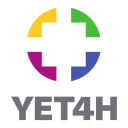
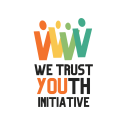
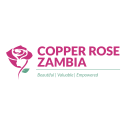


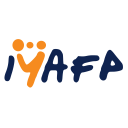
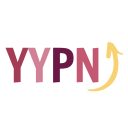



Comments (0)